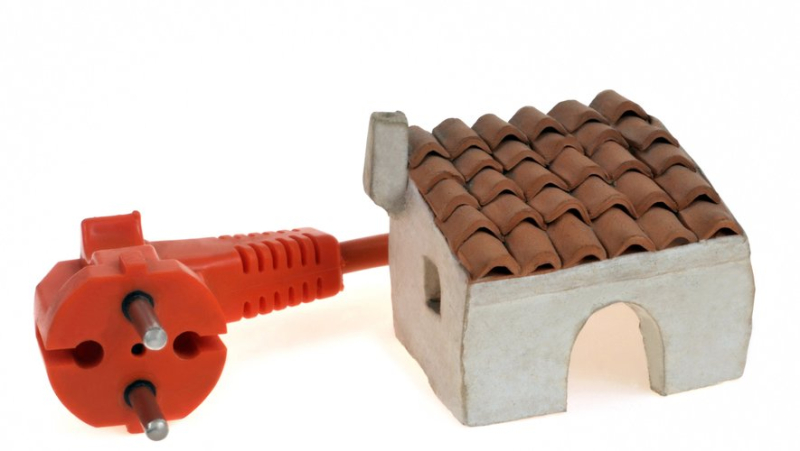Incompressible expenses of French households: they have fallen by 62 euros over one year, according to Lesfurets

While constrained expenses in the household budget fell over one year, only those linked to electricity increased. MAXPPP – Richard Villalon
A sign of the decline in inflation, these so-called constrained expenses are falling for the first time since the creation, five years ago, of the index launched by the comparator. 5% nationally, 1% in Occitania.
This should undoubtedly be seen as a sign of the decline in inflation. The comparator Lesfurets publishes this Tuesday the 6th wave of its Index of constrained expenses, which French households must face. These are these fixed charges which weigh on the budget of the French and which they cannot escape, such as gas, electricity, telephone, transport, insurance, rent, etc. For the first time since the creation of this index, in partnership with the institute CSA Research, these expenses are decreasing.
By 5% over one year, which represents a drop of 62 euros for household portfolios, compared to spring 2023. "On average, the French pay 1,133 euros per month for their constrained expenses, i.e. 35% of their average net monthly income, specifies the study carried out for Lesfurets. A year ago, they accounted for 38% of revenues. In Occitania, constrained expenses represent 37% of net monthly household income. They are at a level lower than the national average, since they represent 1,038 euros. Compared to 1,189 euros a year earlier.
"This drop represents a first hope"
"This slight drop in constrained spending represents a first encouraging hope for the purchasing power of the French, after several years of continuous increases, notes Cédric Ménager, general director of the comparator. Despite this, constrained spending still represents a significant share of French income, regardless of age or socio-professional category. But it is important to keep in mind that you can regularly make savings on these expenses".
The study identifies a range of 11 constrained expenses that French households have to honor each month. Three of them remain essential: housing (for 97% of them), communication (98%) and transport (94%). "Only the expenditure on gas/oil/collective heating recorded a notable drop in the number of French people concerned", notes the study. It now only affects 58% of them, a drop of 4 points compared to a year ago. This is "testimony to the sharp decline in sales of oil or gas heating in recent years in France".< /p>
Electricity, one of the few expenditure items on the rise
A decrease is also observed in other constrained expenditure items, but at a lower level. This is the case for those linked to housing, such as rent or mortgage, which falls by 38 euros, from 680 euros to 642 euros. This is also the case for consumer credit, which goes from 185 euros to 162 euros. But also fuel, whose monthly weight in the household budget goes from 132 euros to 119 euros. A drop, certainly slight, but "synonymous with a gradual return to calm following the shortages and price surges of 2023".
Electricity is one of the rare expenditure items showing an increase. "Unsurprisingly", this reaches 10 euros monthly, going from 103 euros to 113 euros. But, for all that, the prices for home insurance (68 euros vs. 70 euros in 2023) and health insurance (105 euros vs. 104 euros in 2023) seem stable and car insurance decreases very slightly, going from 91 to 85 euros per month. "This can be explained by a desire of the French to challenge their various insurance companies, in order to anticipate the various price increases announced in recent months".
Nearly one in four French people say they are overdrawn each month
For the first time, Lesfurets sought to know the proportion of French people who are overdrafted each month. Result: "nearly a quarter of the French people surveyed (22%), indicate that they are overdrawn on their current account, every month or almost”. But not everyone is in the same boat, since this figure rises to 31% among 25-34 year olds and 37% among parents of children under 15 years old.
"Beyond the regularity of overdraft, we also observe that of the 22% of French people who declare themselves to be overdrafted every month, on the day of overdraft occurs on average from the 17th day of the month", specifies the study. Nearly one in two households, around 43%, "even declare that they are generally overdrawn from the first fortnight". And 47%, "between the 15th and 25th of the month".
I subscribe to read more




